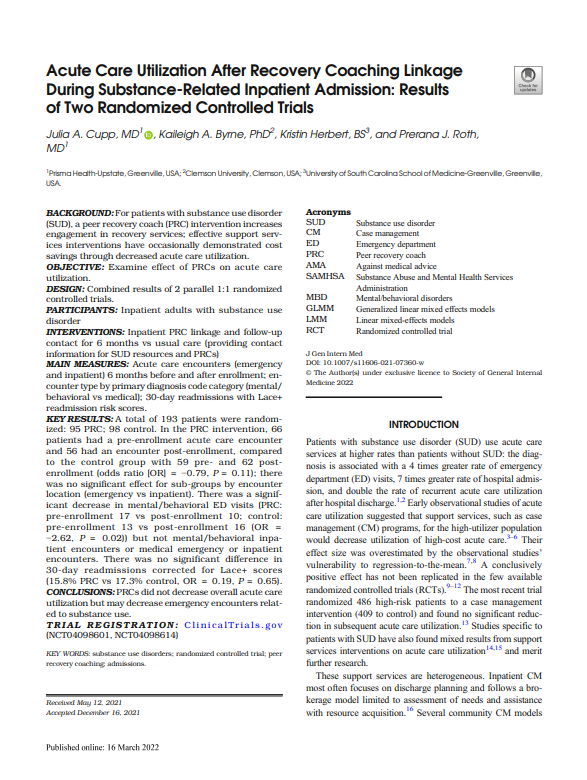Headline
Peer recovery coaching intervention for hospitalized people with substance use disorder led to mixed acute care utilization outcomes.
Context
People with substance use disorders (SUD) have substantially higher rates of emergency department visits and inpatient stays than those without SUD. Peer recovery coaches are non-clinical peer mentors who are in active recovery and provide supports for people with SUD. This study evaluates the results of two randomized controlled trials on an intervention providing linkages to peer recovery coaches for people with SUD during their hospitalization and for up to six months afterwards, as compared to usual care.
Findings
Inpatient peer recovery coach linkages and follow-up contacts led to a significant decrease in emergency department visits for substance use or mental health reasons, but not behavioral health-related inpatient stays or medical emergency or inpatient encounters. There was no significant difference in overall acute care utilization or 30-day readmissions rates.
Takeaways
Despite the mixed results, the study authors suggest that these findings along with other recent studies on navigation services for people with SUD show that peer interventions may be more effective in reducing SUD-related acute care rather than on other types of acute care. Providers can apply these findings when developing goals and program design for similar interventions and may consider evaluating goals beyond acute care utilization.

